From the February 5, 1988 Chicago Reader. — J.R.
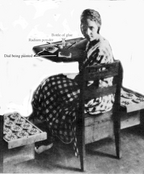
RADIUM CITY
Directed by Carole Langer
Thanks largely to the influence of auteur criticism, most of our aesthetically oriented writing about film since the 60s has been concerned with style. But one could argue that such an emphasis has tended to divert attention from what might be considered even more important — namely, form and content. “Whatever its sophistication,” Roland Barthes wrote in Writing Degree Zero, “style always has something crude about it: it is a form with no clear destination, the product of a thrust, not an intention. . . . Its frame of reference is biological or biographical, not historical . . . it rises up from the writer’s myth-laden depths and unfolds beyond his area of control.”
Perhaps only in an area like Hollywood moviemaking, where the artist seldom has final control over either the form or the content, can style be raised to the level of an ultimate principle. Yet because Hollywood continues to dominate our screens as well as the ways that we think about movies in general, the notion of style is also routinely applied to Bresson, Godard, Kubrick, and Tarkovsky, when surely form and content, not style, is what their best films are about. Read more
Written for The Unquiet American: Transgressive Comedies from the U.S., a catalogue/ collection put together to accompany a film series at the Austrian Filmmuseum and the Viennale in Autumn 2009. — J.R.
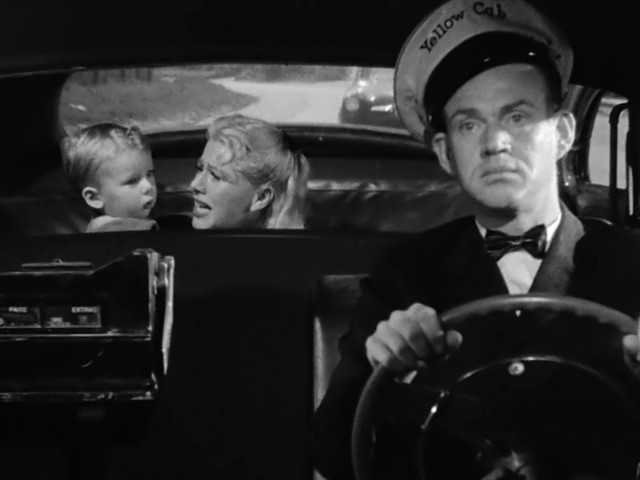
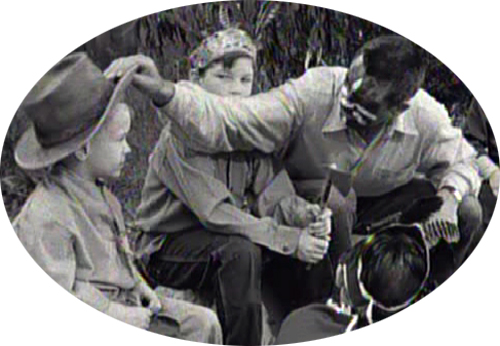
MONKEY BUSINESS (1952)
Although technically a fantasy, this characteristically
grim Howard Hawks comedy about the fear of aging
and the worship of youth is arguably one of his most
honest and realistic, therefore among the most frightening.
A chimpanzee in a chemistry lab manages to
create a youth potion accidentally ingested by the
middle-aged scientist-hero (Cary Grant), who regresses
first to his teens and then, after a second dose, to
his attitudes and behavior in grammar school, which
also happens eventually to his wife (Ginger Rogers)
and boss (Charles Coburn), thereby debunking a
good many myths about youth and happiness (such
as those involving carefree innocence) in the process.
Broadly speaking, this movie does for (and with)
ageism what Gentlemen Prefer Blondes, shot half a
year later (with some of the same cast members, including
Marilyn Monroe, Coburn, and George Winslow),
does for (and with) capitalism, albeit with less
celebratory cynicism and more visible despair. This
doesn’t mean, of course, that it isn’t funny; at least
four Hollywood pros (Ben Hecht, Charles Lederer,
I.A.L. Read more
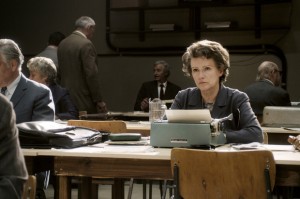
I never expected to see any Margarethe von Trotta movie more than once, but Hannah Arendt proved to be well worth a second look. Some of my reasons for going back are undoubtedly personal; Arendt’s husband, Heinrich Blücher, astutely played in the film by Axel Milberg, is by far the greatest teacher I’ve ever had, two of whose seminars at Bard College I was fortunate to take, and Arendt’s Eichmann in Jerusalem, the main focus of the film, appeared in The New Yorker during the same period. The controversy it sparked among New York intellectuals at the time made it the major topic of discussion among visiting speakers; I can recall lengthy conversations I had or overheard with Harold Rosenberg and Dwight Macdonald, among many others who came to campus during that period. (Lionel Abel, perhaps the most intemperate of Arendt’s foes, also came, but as I recall I went out of my way to avoid broaching the subject with him.) And there were plenty of snack-bar dialogues at Bard with Blücher on the same subject.
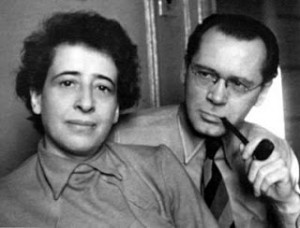
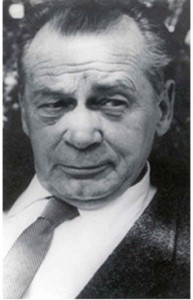
For me, part of the singularity of both Blücher and Arendt (whom I met only briefly, once in their Riverside Drive apartment) was the degree to which art, politics, philosophy, moral seriousness, and a remarkable passion for ethics interfaced in their discourse and lives with an unflagging intensity, and what I cherish most about von Trotta’s movie is the degree to which she — and, above all, Barbara Sukowa as Arendt — capture this. Read more






